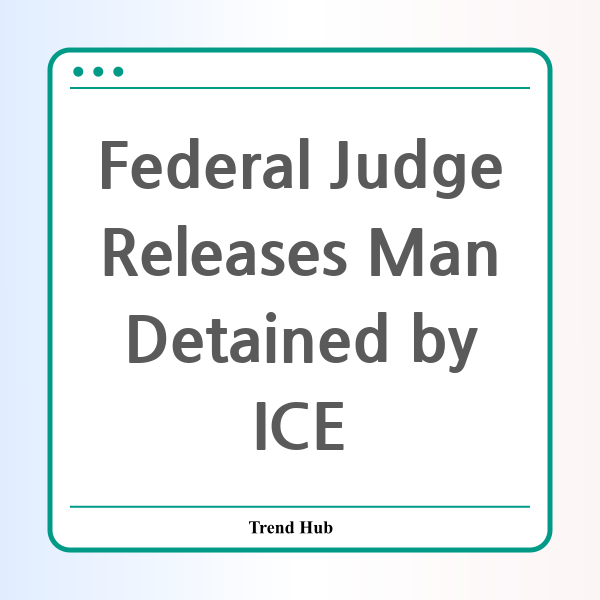* This website participates in the Amazon Affiliate Program and earns from qualifying purchases.

Is the U.S. Justice System Protecting Free Speech?
In a striking case that brings to light the complexities of immigration, rights, and freedom of speech, a federal judge has ruled in favor of a 34-year-old Indonesian man, Aditya Harsono, who was detained by U.S. Immigration and Customs Enforcement (ICE). The ruling raises crucial questions about how the justice system addresses the intersections of immigration status and civil liberties, particularly for noncitizens involved in political activism.
Aditya Harsono, a resident of Marshall, Minnesota, arrived in the United States in 2015 to study at Southwest Minnesota State University. However, in March, Harsono found himself facing unexpected legal troubles when he was arrested at his workplace after allegedly overstaying his student visa. This incident took a drastic turn when it was revealed that Harsono's detention might have been politically motivated, resulting in a federal judge's intervention that emphasized the protection of First Amendment rights.
After nearly two months in ICE custody, Harsono was released following a ruling by U.S. District Judge Katherine Menendez. The judge concluded that Harsono's detention likely stemmed from his participation in social justice demonstrations, particularly after the police killing of George Floyd and the associated protests, including the Black Lives Matter movement. The implication that his detainment was a direct retaliation for his exercise of free speech opens a wider discussion on the chilling effect such actions may have on activists and noncitizens alike.
Throughout his time in custody, Harsono maintained that his arrest was unjust and indicative of a growing trend against political activism among international students. His case has become emblematic of the struggles faced by many who dare to voice their opinions on controversial subjects, highlighting the precarious balance between immigration laws and the protection of civil liberties.
Judge Menendez’s ruling emphasized the inconsistencies in the government's rationale for Harsono's arrest, stating that it appeared to be a pretext designed to stifle his free speech. This sentiment resonates deeply in an era where many are advocating for progressive changes in U.S. policies while fearing repercussions that may arise from their activism.
Harsono's situation also reveals a disturbing trend: international students finding themselves on the receiving end of visa revocations not solely due to legal infractions but as a result of their political engagement. Harsono's history, including a previous misdemeanor conviction for vandalism, was positioned in this light, though his attorney argued that such a conviction is not grounds for deportation. This case sheds light on the broader implications of how legal systems can sometimes be weaponized against individuals based on their beliefs and actions.
As Harsono celebrates his release and the opportunity to reunite with his family, one cannot help but reflect on the larger implications for immigration policy and civil rights in the United States. His case serves as a reminder that the pursuit of justice is not just about individual cases but encompasses the fundamental rights and liberties of all, particularly those who may be at a disadvantage.
As discussions surrounding immigration reform and civil rights continue, it’s essential to consider how similar cases may unfold in the future and the steps that can be taken to protect those who may be vulnerable to retaliatory actions as a result of their activism. The intersection of law, immigration, and free speech remains a dynamic area of public discourse that warrants ongoing scrutiny.
What does this mean for the future of activism among noncitizens? The outcome of Harsono's case could pave the way for more robust protections for individuals who choose to use their voices and actions to advocate for change, ensuring that their rights are upheld regardless of their immigration status.
* This website participates in the Amazon Affiliate Program and earns from qualifying purchases.